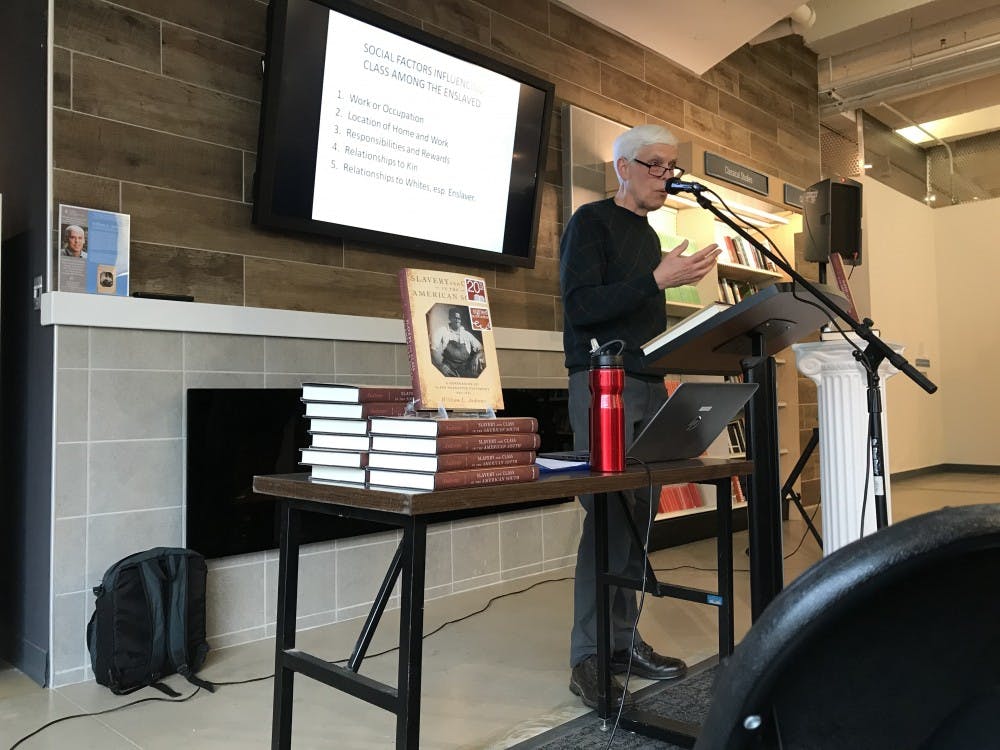As part of the 2019 Writer’s Discussion Series, William Andrews presented a lecture on Tuesday to promote his newest publication. Titled “Slavery and Class in the American South: A Generation of Slave Narrative Testimony, 1840-1865,” Andrews discusses the role and influence of status and class in the lives of the enslaved.
With a look into more than 60 mid-nineteenth-century slave narratives, Andrews’ book illustrates the effects of social mobility among slaves in the South.
“My book draws on all the slave narratives that were published between 1840 and 1865,” Andrews said. “Most people write about a few of the narratives, especially the most famous people who wrote the narratives, people like Frederick Douglass, Harriet Jacobs and William Wells Brown.”
While Andrews has included these prominent stories in his book, he wanted to bring light to the less-heard, but equally important, narratives.
“My book is about a great many people whose narratives have not been discussed much, if at all,” Andrews said. “... And it’s important if you’re going to understand class to understand what everybody had to say about their experience in slavery, and therefore their experience in class as well, not just what the most famous people had to say about it.”
To prime the audience with a better understanding of the writing style and word choice often used in slave narratives, Andrews’s narrated the preface from his publication.
“(The preface) helps to understand why American slavery is fundamental to an understanding of America, of what America was and still is,” Andrews said.
As he continued, Andrews outlined the major principles he has identified from his research into the slave narratives.
“From these narratives, I’ve realized the four basic defining institutions of the United States at its founding, namely democracy, capitalism, Protestant Christianity and marriage, were profoundly corrupted by the fifth defining institution of the United States at its inception: slavery,” Andrews said.




